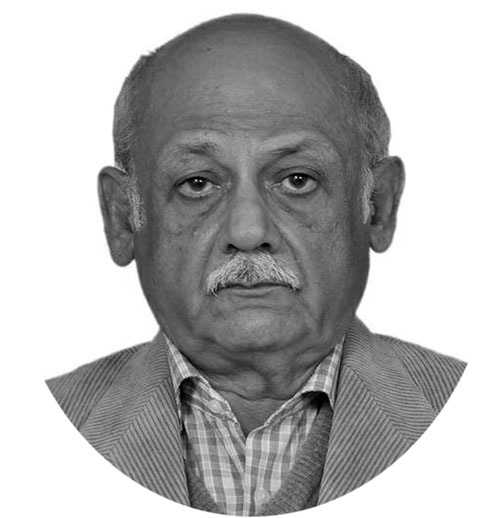Pak & challenge of nation-building
NATION-building means the process of building a national identity using the power of the state. This process aims to unify the people within the state so that the state remains politically stable.
Pakistan as a nation state has faced many trials and tribulations, some natural and some man made during its short history of seventy four years.
It is said that before 1947, we were a nation in search of a state and now we are a state in search of a nation.
Though nation-building takes centuries and is an ongoing process when any state develops institutions, strengthens itself economically, politically and socially. Pakistan emerged as a new nation state in 1947 on the basis of the two-nation theory.
Since birth, it has faced numerous challenges related to development as a nation and the process continues to this day.
Pakistan is a multi-cultural, multi religious and a multi-lingual country though a vast majority of its people are Muslims. The religious nationalism proved a failure when in 1971 East Pakistan became Bangladesh.
Sindh, Balochistan and KP have witnessed the rise and fall in the graph of ethnic nationalism and have always had their reservations against the Punjab and the Punjabi Establishment.
The very first challenge faced by the country in nation building was the inordinate delay in the formulation of a Constitution that led to many problems and is definitely the main enigma in the nation-building in Pakistan.
Within two years after independence India got its Constitution but it took Pakistan nine years to achieve that objective.
Abiding by the constitution and a strong Parliament can strengthen the state and it is the only forum to address grievances arisen among provinces. Military coups and dictatorships have a very negative impact on the State and its institutions.
The defence forces proclaim themselves the guardian of the ideology of Pakistan and the military ideology has been connected to religion and this was very apparent during the Zia-ul-Haque rule of eleven long years.
In Pakistan religion has not been a binding force but the opposite has happened by dividing the nation in many segments.
A nation-state treats all its citizens equally and does not discriminate on the basis of religion caste or creed and this was made very clear by the father of the nation who acknowledged the need of nation building in his first address to the Constituent Assembly on 11 August 1947.
Mullah-Military nexus and the amalgamation of religion into state matters divided the society into distinct groups and this became the main hurdle in the emergence of Pakistan as a modern nation-state.
Violence against minority faiths and between different sects of Muslims has damaged the country more than any external threat
. Law and order situation due to terrorism and sectarianism has resulted in low investment in the country leading to a weak economy.
The economic development of a country is the main factor for uniting different sub nationalities into a nation and we have the examples of Malaysia and Singapore before us.
In the case of Pakistan uneven economic development, gap between rich and poor, urban and rural and among provinces has resulted in a great mistrust and enmity between units of the federation.
Smaller provinces accuse Punjab and the federal govt. for the exploitation of their resources. Punjab is the most developed province and Balochistan the most backward.
Another important and effective tool in nation-building is education. Pakistan’s education system is in a shambles and the country is still saddled with a low literacy rate.
Three to four education systems are running parallel to each other and now the uniform curriculum introduced by the present government is nothing but a recipe for disaster because it is nothing but another onslaught of rabid religious injunctions.
Today the future of Pakistan after 74 years of existence hangs in the balance.
Political paralyses, religious fanaticism and militancy are great impediments in economic development and the economic problems restrict financial possibilities to develop infrastructure and social support systems.
The last general election has shown a very strong ethnic bias in politics. Today no party has a truly national following. The PML (N) has a large support in the Punjab but in all other provinces it is rather weak.
The PPP has been reduced to a party of rural Sindh, the MQM commands respect in urban areas of Sindh only, In KP and Baluchistan local, ethnically based or religious parties rule the roost.
The PTI of Imran khan ruling the country now has failed miserably to deliver and has been a great disappointment.
During the last 40 years or so fragmentation of the political system has increased massively and has grown more provincial in character than national.
Religious extremism continues to rise and the present government has added fuel to the fire of extremism and bigotry by raising slogans based on religious injunctions and neglecting the urgent task of nation-building.
—The writer is Professor of History, based in Islamabad.










